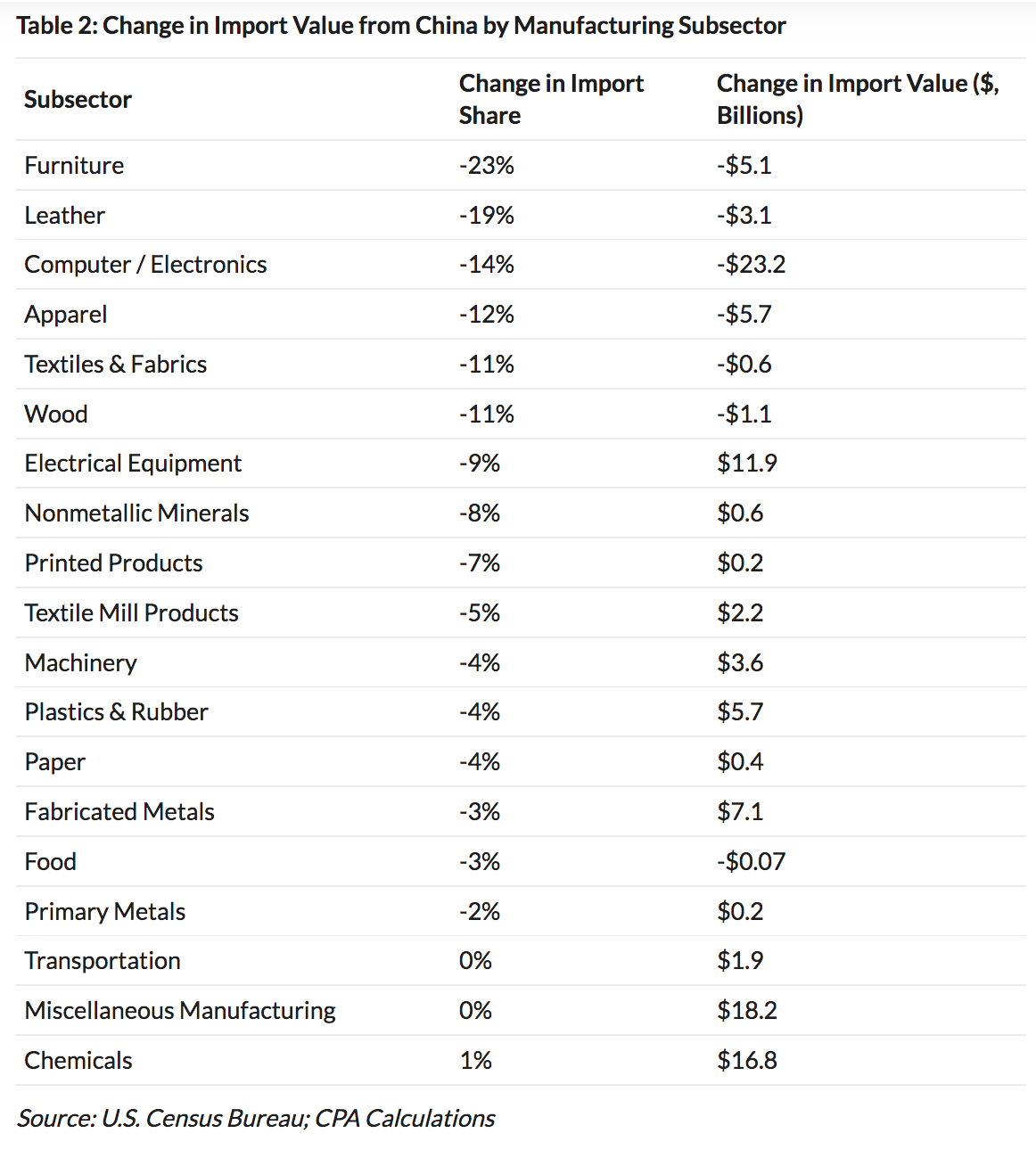United States tariffs on billions of dollars worth of Chinese products have helped slash the nation’s dependence on China while reshoring jobs back to American communities, a new analysis finds.
In 2018, former President Trump began imposing billions worth of Section 301 tariffs on China-made products. Analysis from the Coalition for a Prosperous America (CPA) reveals that the tariffs, a fixture of any economic nationalist agenda, have successfully reduced U.S. dependence on China.
“While U.S. imports surged by 39 percent between 2017 and 2022, China imports were up very slightly, and still below their 2018 peak,” the CPA analysis from Andrew Heritage states. “As a result, China fell from 21.6 percent of U.S. imports in 2017 to just 16.5 percent in 2022.”
Significantly, China lost import value in 16 of 19 manufacturing sectors after the tariffs were imposed, losing 23 percent in furniture, 19 percent in leather, 14 percent in computer and electronics, and 12 percent in apparel.
“So far this year, U.S. imports from China are running about 15 percent below the 2022 level, suggesting that China’s share is likely to shrink further,” the CPA analysis states:
Since the Section 301 tariffs were imposed, the share of imports from China has steadily declined from 21.6% in 2017 the year prior to the tariffs to 16.5%, a decline of 5.1%. No other country has lost as much share of total U.S. import penetration over the past five years. [Emphasis added]
…
It is significant that China added value in transportation, a sector that includes electric vehicles and aerospace. For more than a decade, China has targeted the EV market and is building global brand names like Polestar and BYD. Similarly in aerospace, China’s COMAC recently launched the C919, a passenger jet to compete with Boeing and Airbus. China will be a world-class competitor in both of these industries. But in many other sectors, it has gained through low wages, intellectual property theft, and U.S. negligence of its own manufacturing capabilities. [Emphasis added]
Months ago, the U.S. International Trade Commission noted in a report that “for every one percent increase in these tariffs, imports from China of products covered by the tariffs have decreased by about 2 percent in value and quantity,” suggesting long-term gain from the U.S. imposing tariffs.
That same report revealed that tariffs have boosted American production in key sectors like semiconductors.
“Is there a more positive, seamless revenue tool than China tariffs? I can’t imagine … time to move on to global tariffs and save the Republic,” trade attorney Charles Benoit wrote on Twitter, noting that the federal government collected nearly $105 billion from tariffs on foreign imports last year — almost half of which, $49 billion, was taken from China.
Sens. Tom Cotton (R-AR), Ted Budd (R-NC), Rick Scott (R-FL), and J.D. Vance (R-OH) have proposed legislation that would end the nation’s free trade policy with China altogether, imposing tariffs on all foreign imports from China. Similar legislation from Sen. Josh Hawley (R-MO) would do the same.
Last week, U.S. Trade Representative Katherine Tai defended the tariffs even as President Joe Biden has said he has no interest in decoupling the American economy from China.
John Binder is a reporter for Breitbart News. Email him at jbinder@breitbart.com. Follow him on Twitter here.


COMMENTS
Please let us know if you're having issues with commenting.